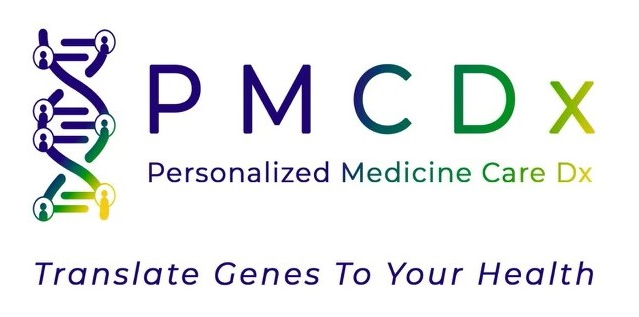| ATM |
Heterozygous pathogenic variants in ATM are associated with an increased risk for breast and pancreatic cancer. Additionally, biallelic pathogenic variants in ATM have been associated with ataxia-telangiectasia. |
PubMed: 15928302, 22585167, 20301790, 28418444; OMIM: 607585 |
| BARD1 |
Heterozygous pathogenic variants in the BARD1 gene raise an individual’s risk of developing breast cancer in their lifetime. |
PubMed:23586058, 28418444; OMIM: 114480 |
| BRCA1 |
Heterozygous pathogenic variants in the BRCA1 gene are the most common cause of hereditary breast and ovarian cancer syndrome (HBOC). |
PubMed: 9497246, 12677558, 17416853, 20301425, 22846731 |
| BRCA2 |
Autosomal dominant mutations in the BRCA2 gene are implicated in the hereditary breast and ovarian cancer syndrome (HBOC). Additionally, biallelic mutations in BRCA2 gene are associated with autosomal recessive Fanconi anemia Types B and D1 . |
PubMed: 12065746, 12677558, 9497246, 17416853, 18042939, 20301425, 22846731; PMC: 2267287 |
| CDH1 |
Pathogenic heterozygous variants in the CDH1 gene are associated with an increased risk for gastric and lobular breast cancer. |
PubMed: 11729114, 20301318; OMIM: 192090 |
| MLH1 |
While heterozygous pathogenic variants in MLH1 are associated with Hereditary Non-Polyposis Colorectal Cancer (HNPCC), also known as Lynch Syndrome, biallelic pathogenic variants have been associated with constitutional mismatch repair deficiency syndrome (CMMRD). |
PubMed: 20301390, 22692065; OMIM: 120436 |
| MRE11 |
Autosomal dominant pathogenic variants in the MRE11 gene, also known as MRE11A, have been associated with a predisposition to breast cancer . Biallelic mutations in the MRE11A gene are associated with MRE11 deficiency, an ataxia telangiectasia-like disorder. |
PubMed: 26436112, 26328243, 15574463; OMIM: 600814 |
| MSH2 |
Heterozygous pathogenic variants in MSH2 are associated with Hereditary Non-Polyposis Colorectal Cancer (HNPCC), also known as Lynch Syndrome. Biallelic pathogenic variants have been associated with constitutional mismatch repair deficiency syndrome (CMMRD). |
PubMed: 20301390, 22692065; OMIM: 120436 |
| NBN |
Heterozygous pathogenic variants in NBN (also known as NBS1) have been associated with a number of malignancies including melanoma, non-Hodkins lymphoma, medulloblastoma, and colorectal, prostate, and breast cancers . Other studies have shown possible associations with aplastic anemia and acute lymphoblastic leukemia. Biallelic pathogenic variants in NBN have been associated with Nijmegen Breakage syndrome (NBS). Individuals with NBS generally have progressive intellectual disability, growth retardation and immunodeficiency, and are at an increased risk for a variety of cancers, including lymphoma, glioma, and medulloblastoma. |
PubMed: 14973119, 15185344, 16474176, 16770759, 18079974, 19908051, 21514219,15338273,11325820, 20301355; OMIM: 609135, 251260 |
| NF1 |
Autosomal dominant pathogenic variants in NF1 cause Neurofibromatosis Type 1 are likely associated with an increased risk for breast cancer, although this has not been confirmed in all studies. |
PubMed: 17636453, 20301288, 23165953, 28418444; OMIM: 613113 |
| PTEN |
Individuals with heterozygous pathogenic PTEN variants are at a significantly increased risk for multiple types of cancers, including breast, thyroid, colorectal, endometrial, renal, and others. Autosomal dominant mutations in PTEN have been associated with a spectrum of disorders sometimes referred to as PTEN hamartoma tumor syndrome. PHTS includes several conditions with overlapping clinical features, including Bannayan-Riley-Ruvalcaba syndrome (BRRS), Cowden syndrome (CWS1), macrocephaly/autism syndrome, and PTEN-related Proteus syndrome (PS). |
PubMed: 20301661; OMIM: 601728 |
| RAD51C |
Heterozygous pathogenic variants in RAD51C are associated with an increased risk for ovarian cancer, and possibly breast cancer. Additionally, biallelic pathogenic variants in RAD51C were reported to be associated with Fanconi anemia. |
PubMed: 22476429, 22538716, 21990120, 2841844 |
| RAD51D |
Heterozygous pathogenic variants in RAD51D are associated with an increased risk for breast cancer and ovarian cancer. |
PubMed: 21822267, 26261251, 2841844 |
| STK11 |
Autosomal dominant pathogenic variants in STK11 have been associated with Peutz-Jeghers syndrome (PJS) which is associated with an increased risk for multiple types of cancer, including breast, ovarian, gastric, colorectal, and pancreatic. |
PubMed: 15121768, 20301443; OMIM: 175200, 260350 |
| TP53 |
Heterozygous pathogenic variants in the TP53 gene are associated with Li-Fraumeni syndrome, a condition that increases risk for many types of cancer. |
PubMed: 20301488, 26014290, 2614290; OMIM: 151623, 191170 |
| XRCC2 |
Autosomal dominant pathogenic variants in the XRCC2 gene may be associated with an increased risk for breast cancer, but additional research is needed to confirm this association. |
PubMed: 22464251, 25918678; OMIM: 600375 |
| RAD50 |
Autosomal dominant pathogenic variants in RAD50 may be associated with a small increased risk for breast cancer, although studies are contradictory. Biallelic pathogenic variants in RAD50 were reported to be associated with Nijmegen breakage syndrome-like disorder (NBSLD) in one individual. |
PubMed: 19409520, 20301355, 23586058, 26250988, 28418444; OMIM: 613078 |
| CHEK2 |
Heterozygous pathogenic variants in CHEK2 are associated with approximately a two-fold increased risk for breast cancer, as well as other CHEK2-related cancers. |
PubMed: 16998506, 18172190, 21876083, 27595995, 15492928, 11719428, 20597917, 21807500, 21876083, 21956126, 23713947, 23296741, 24240112, 24599715, 24879340, 25431674, 11370630, 15951970, 17164383 |
| PALB2 |
Autosomal dominant pathogenic variants in PALB2 have been associated with an increased risk of some types of cancer, including breast and pancreatic cancer. Biallelic pathogenic variants in PALB2 have been associated with Fanconi anemia of complementation group N (FANCN) . For women, the risk for breast cancer has been estimated to be two to three times greater than the population risk. |
PubMed: 17200672, 24870022, 17200668, 21285249, 24141787, 25099575; OMIM: 610355 |
| BRIP1 |
Heterozygous pathogenic germline variants in the BRIP1 gene are associated with an increased risk for ovarian cancer. A possible association with increased risk for breast cancer has also been suggested, although this has not been proven to date. Biallelic mutations in BRIP1 have been associated with Fanconi anemia of complementation group J (FANCJ). |
PubMed: 24301948, 28085182, 20301575, 26315354, 28418444 ; OMIM: 609054, 605882 |
